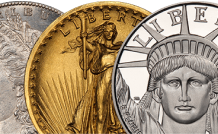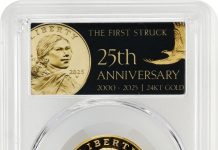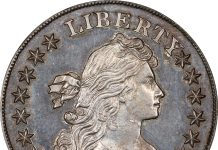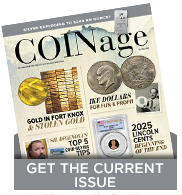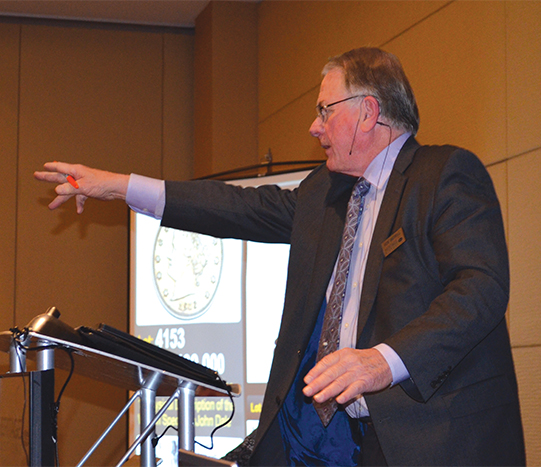
By Donn Pearlman
Do you bid in auctions for coins or bank notes? Multi-million dollar “trophy” coins and notes make big headlines, but there also are thousands of lower-priced items offered in auctions every week for the “average” collector to consider.
Bidding in auctions is fun, but you need to plan ahead.
My first winning bid, for a Colonial era 1787 Connecticut copper coin, was an enjoyable experience. It was the late 1970s and after carefully reading the printed auction catalog and viewing the photos, I submitted my bid by mail. (Yes, it was long before the internet changed the world of collecting and just about everything else.) A few weeks later I was notified I not only won the bid but I got the coin for a little less than my offer because it was higher than the next increment in bidding.
New Bidding Options, Same Need for Knowledge
Fast forward to the 21st century when we now have the ease of viewing auction lots online as well as getting printed catalogs with high-quality, full-color images of the offered items. However, some things haven’t changed, and potential bidders still need to be knowledgeable and diligent.
First, do your homework. Is the offered item something you really want for

your collection? If so, what’s the maximum you’ll pay for it? Keep in mind that, in addition to your bid, you’ll probably have to add the buyer’s premium that may range from 10% to 25% of your winning bid. Plus you’ll probably have to pay sales tax and perhaps a delivery charge. That total amount is what you’ll have to pay.
Second, what is the reputation of the auction house or individual offering the item? Is the seller a member of the American Numismatic Association, Professional Numismatists Guild, the Industry Council for Tangible Assets, or another well-recognized hobby or trade organization? Is the company a member of the local Better Business Bureau, and if so, what is their BBB rating (easily obtained online)? Read the auction’s Terms of Sale (TOS) carefully. Does the seller offer a guarantee of authenticity? What is the return policy if you are not satisfied with the coin or note when you receive it?
Preparation Adds to Auction Enjoyment
Third, there is a difference between auction houses and auction platforms. Some people may not realize that eBay and other online entities are not “auction houses,” but rather platforms for others to offer items. Whether viewing the auction lots in person or online, carefully look at each item before bidding.
Online auctions are convenient and provide a worldwide opportunity to acquire items for your collection with just a few keystrokes. Yet, attending a live auction in person can be an enjoyable as well as educational experience. The photo at the beginning of this column is affable Bob Merrill expertly calling the winning bid on the famous Walton specimen 1913 Liberty Head nickel during a Heritage Auctions event near Chicago in April 2013. I didn’t bid on that coin, but it certainly was exciting to be in the room when it sold for $3.17 million!
Attending an auction in person is part of the entertaining hobby experience.
Donn Pearlman is a former American Numismatic Association Governor and recipient of dozens of writing and broadcasting awards.
Want to receive COINage magazine in your mailbox or inbox? Subscribe today!



